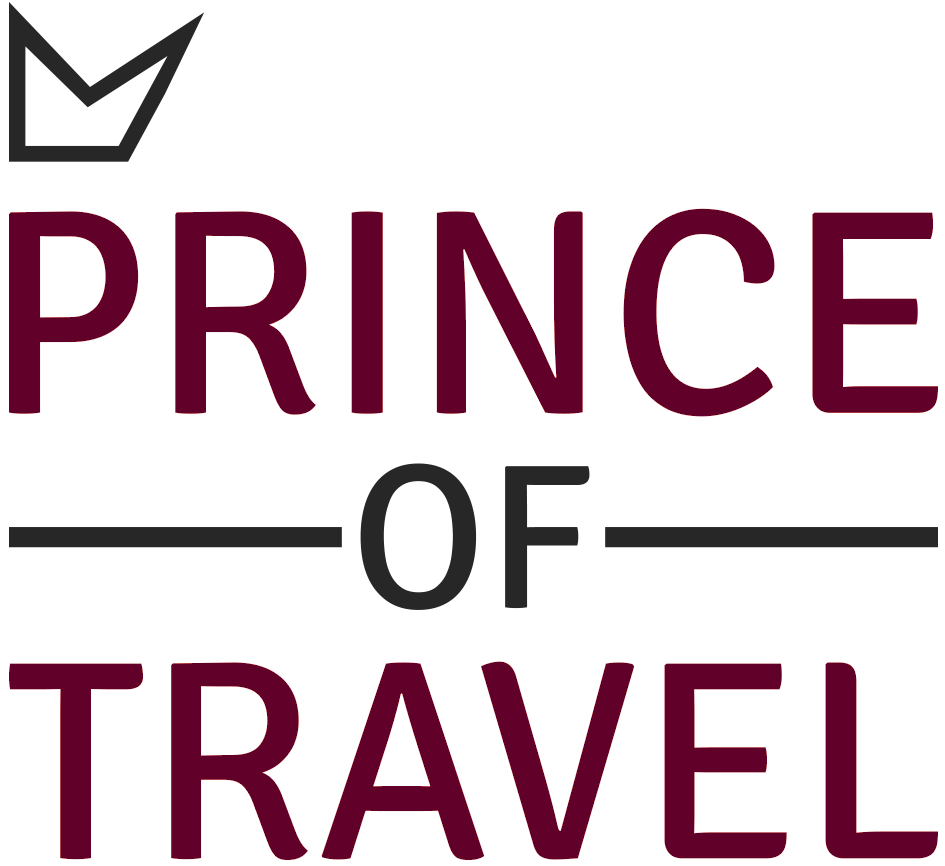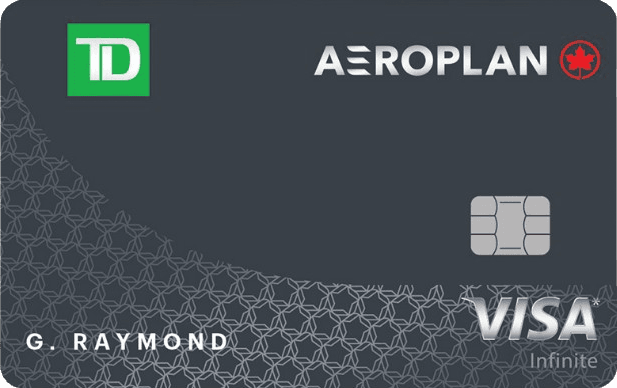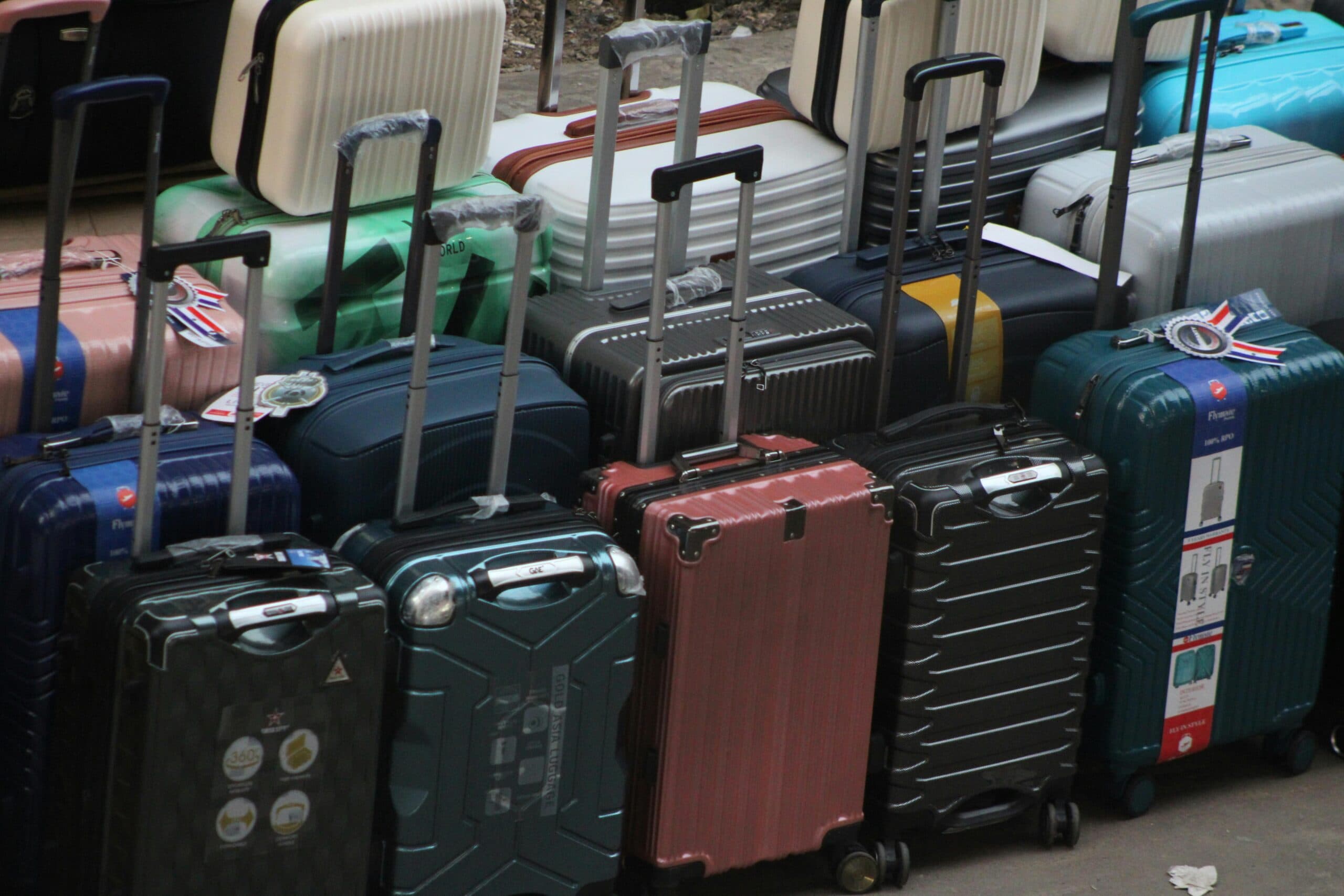How to Maximize Aeroplan for Family Travel

As Canada’s biggest airline loyalty program, there’s no doubt that Aeroplan is on the mind of many families. Using points to cover the cost of some or all flights can be a huge benefit, as costs come can add up quickly for families planning a holiday.
In this article, let’s take a how you can maximize Aeroplan for family travel, from earning points as a household, to sharing perks among family members, to redeeming points for your next family trip.
Earning Aeroplan Points as a Family
There are a few family-friendly features with Aeroplan that can make earning points as a group much easier.
Family Sharing allows household members to share points from their separate accounts into one communal pool. Even if everyone earns points separately, they’re available for redemption for by all members of the family group.
Up to eight people can be connected to a Family Sharing pool. There’s no requirement to prove familial relations, but you’ll want to be mindful of the members of your group.
For example, let’s suppose that Parent 1 has 100,000 Aeroplan points in their account, and Parent 2 has 50,000 Aeroplan points in their account. After setting up a Family Sharing pool, they’ll both see the balance as 150,000 Aeroplan points when they login to their accounts.
This can be very helpful when there are enough points between the two accounts for a redemption that would be difficult or impossible to make from two separate accounts. There are other advantages to Family Sharing, such as Preferred Pricing, which we’ll get into later on.
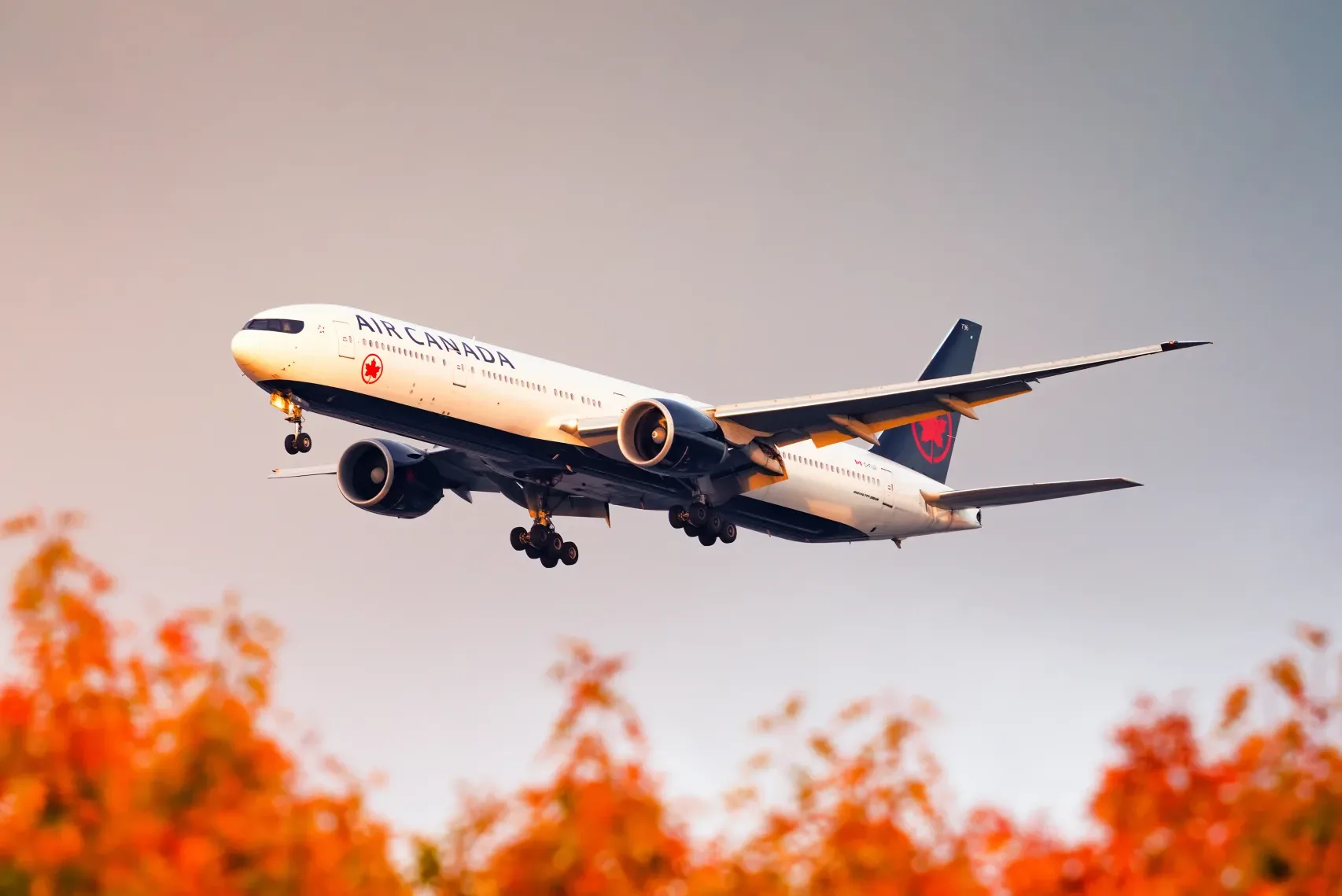
Aeroplan Family Sharing: Earn & Redeem Points as a Household
Read moreAeroplan has 11 co-branded credit cards in the Canadian market, which allows your family to earn points in two-player mode across a wide range of products.
Most of the Aeroplan credit cards also come with additional perks, such as free checked bags, which can be very useful for families travelling on the same booking.
For example, if you have an eligible card and book an Economy (Standard) fare for an Air Canada flight, which typically doesn’t include baggage, everyone travelling on the same reservation will enjoy one free checked bag.
The savings from baggage fees alone on a single flight can be enough to cover the cost of an annual fee of a credit card.
Furthermore, the premium Aeroplan credit cards come with additional perks, such as priority airport services, priority boarding, and lounge access. These can go a long way to reducing the stress of travelling as a family, and again can justify the cost of the higher annual fees if you make enough use of it.
Sharing Aeroplan Perks as a Family
When it comes time to redeem points, there are a few features with Aeroplan that make it easier and cheaper for families to book trips.
One of these benefits is Preferred Pricing. If any one member of a Family Sharing pool has Aeroplan Elite Status or a co-branded credit card, it will reduce the cost for redemptions on Air Canada flights through Aeroplan’s Preferred Pricing.
Furthermore, the discounts increase with higher tiers of status and with a premium credit card versus a lower-tier credit card.
For example, the following flight prices show what someone without Aeroplan Elite Status or a co-branded credit card would see for a flight from Toronto to Vancouver.

Compare the above prices to those from a Family Account with a Super Elite member who has a premium co-branded credit card, such as the American Express Aeroplan Reserve Card.

For a flight in economy, preferred pricing lowers the price by around 5,000 points, and for a flight in premium economy, we see savings of 4,500 points in one case and around 10,000 in the other.
For a booking in business class, the price lowers by almost 20,000 points! These savings can easily stack up quickly, especially if you’re booking for a family all together.
If anyone in your family has Aeroplan Elite Status, there are a couple other perks to be aware of which can help save points or enhance your family’s trip: Priority Rewards and eUpgrades.
Priority Rewards are earned by those with Aeroplan Elite Status. You earn Priority Rewards by spending money on Air Canada flights, or by spending a large volume on the US-issued Chase Aeroplan Card.
Priority Rewards reduce the cost of an Aeroplan redemption by 50%. If a family member flies often enough to earn Priority Rewards, redeeming them for a family trip can result in significant savings.
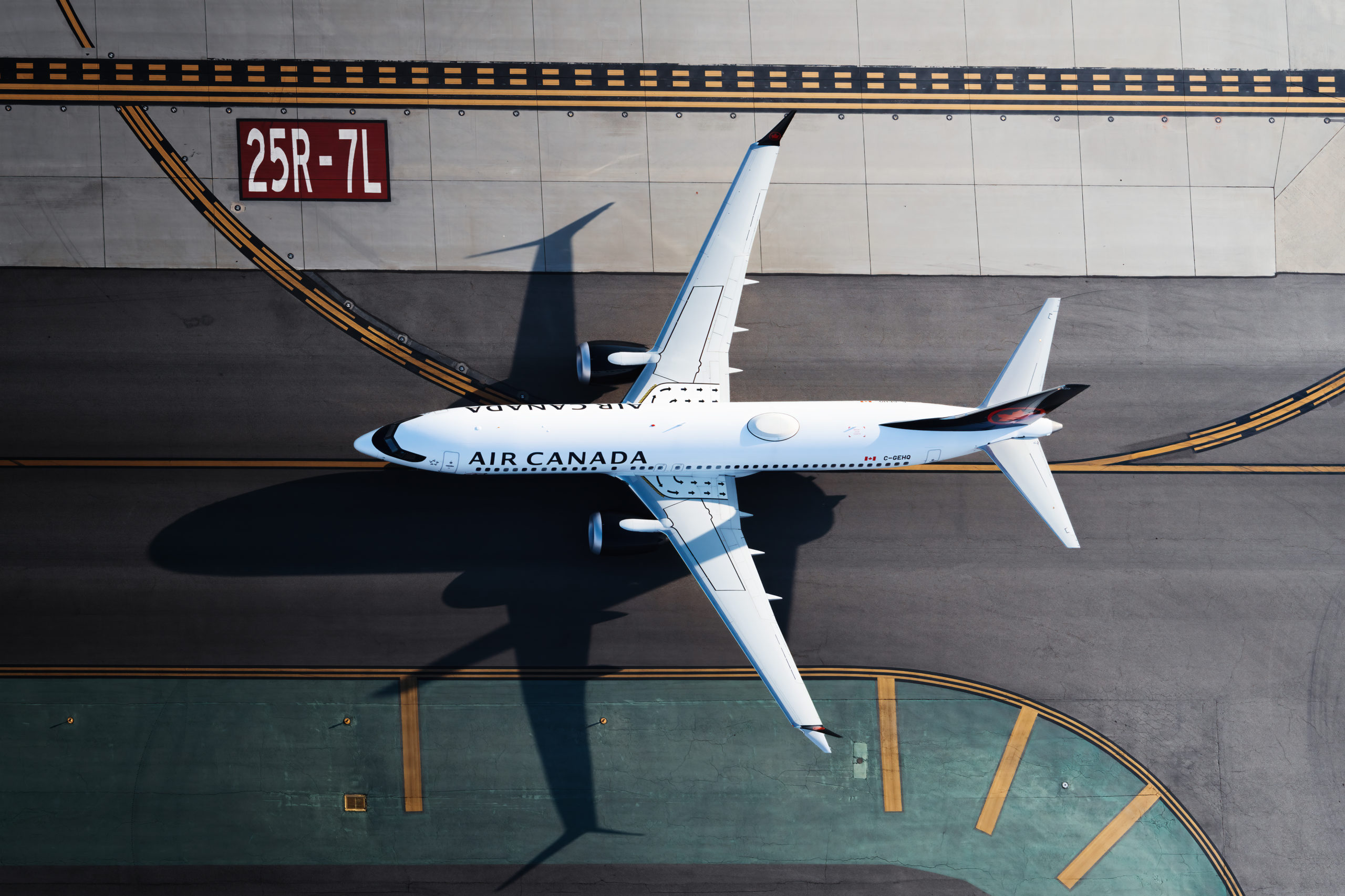
How to Maximize Aeroplan's Priority Rewards
Read moreeUpgrades can be used to upgrade from a lower to a higher class of service. They can only be earned and used by travellers with Aeroplan Elite Status, so you’ll only be able to use them if someone in your family has status.
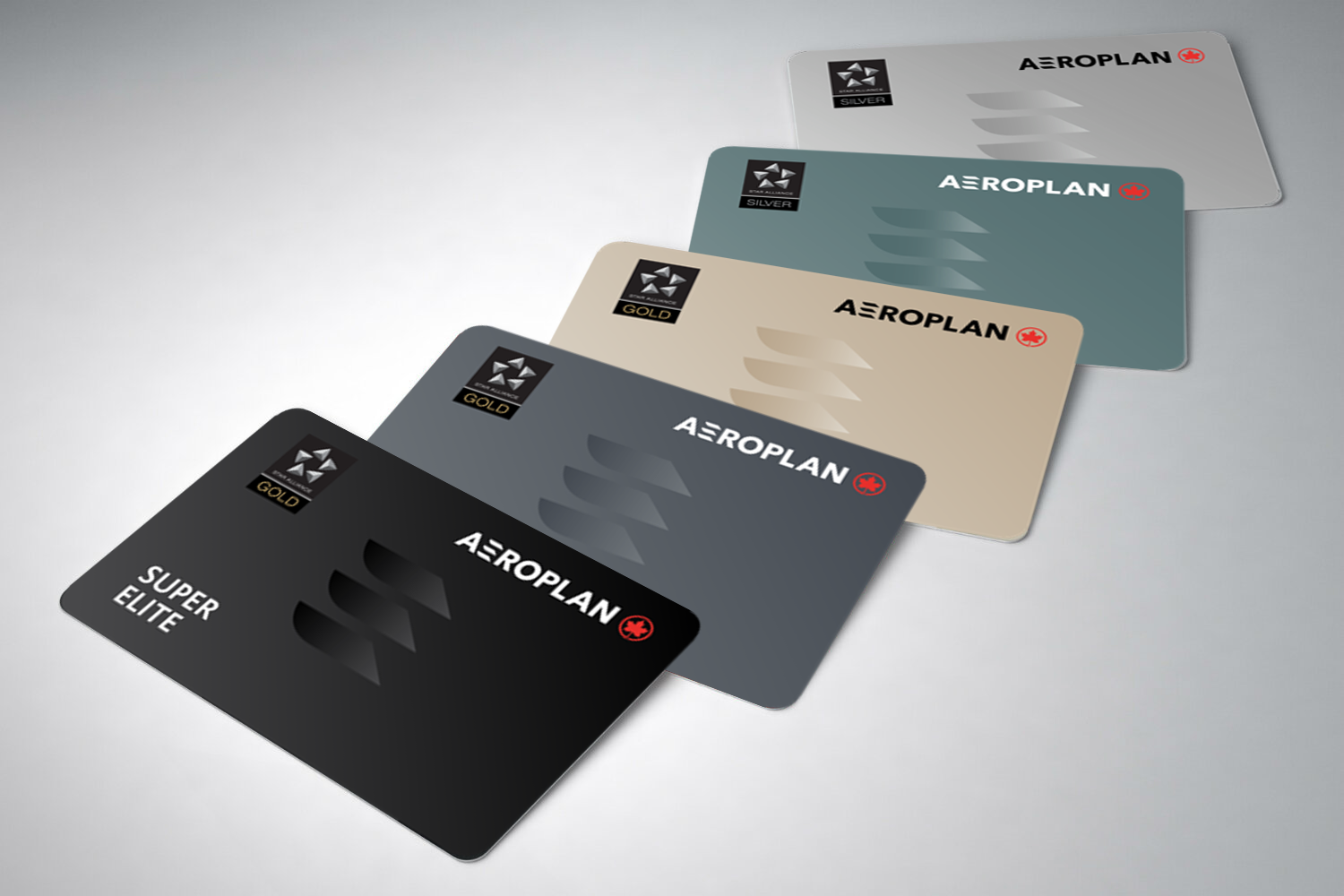
Aeroplan Elite Status: Guide to Qualifying and Privileges
Read more50,000+ travellers get this email
Weekly deals, credit card insights, and points strategies – free forever.
Depending on the size of your family, eUpgrades can be a great way to travel in business class without paying for it in the first place. Understanding eUpgrades can take a while, so be sure to do some reading up if you’re not totally familiar with how they work.
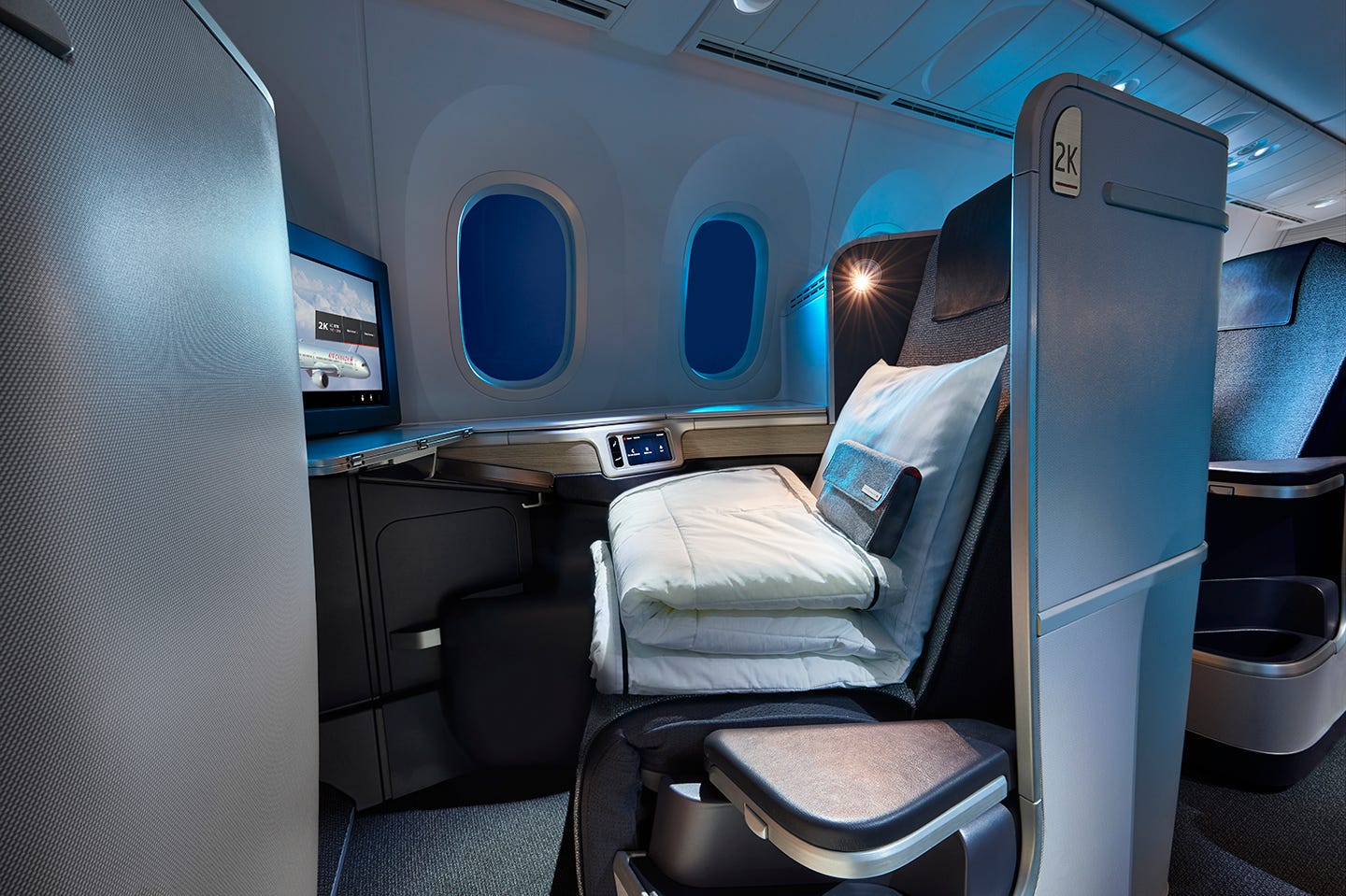
Air Canada eUpgrades: Fly Business Class for the Price of Economy
Read moreRedeeming Aeroplan Points as a Family
When it comes time to actually redeem your points for a family holiday, there are a few general considerations to be aware of.
Choose the Right Fare Option
If you’re planning on flying in economy, then you’ll have to consider the different fare options available to you.
On Air Canada flights, which are subject to dynamic pricing, you’ll notice that Economy (Standard), Economy (Flex), and Economy (Latitude) fares have different costs. Since you don’t earn points or anything towards status on Aeroplan flights, booking the lowest Economy (Standard) fare is the often best play.
This is especially the case if you have a credit card that offers free baggage and priority airport services for anyone on the same booking.
For example, the difference between an Economy (Standard) and Economy (Flex) fare in this case is 11,000 points per person. If you have an eligible credit card, you’ll get checked bags and priority check-in anyway, so there’s no real advantage to spending more points.

Of course, there are other considerations for fares, including change, cancellation, and seat selection fees. But if your dates are set and you’re OK with travelling in economy, then there may not be an advantage to paying for higher fares.
For seating, under Canada’s Air Passenger Protection Regulations, families must be seated either together or near each other at no cost, depending on the age of the children.
You’ll often be assigned seats toward the rear end of the economy cabin, which may not be ideal, but at least you’re guaranteed to be together without having to pay for it.
Book Family Members Separately to Save Points
On the Aeroplan search results page, you may notice that there are only a few seats available at any particular price.
Suppose you’re a family of three who is looking for a flight from Vancouver to Toronto in premium economy. A search result for three passengers shows a price of 42,900 points per person.

But if you do the same search for one passenger, you notice that the price is significantly lower, at 17,200 points.

In cases like this, you’d want to book one passenger at the lower rate, and then book the other two passengers at the higher rate. Even though you’d have to pay the higher price for two passengers, it works out to be an average of 34,333 points per person, with a net savings of 25,700 Aeroplan points.
Doing things this way requires a bit of leg work, but it could wind up saving you points in the end.
Book Partner Airlines to Avoid Dynamic Pricing
Speaking of saving points, if you’re finding that Air Canada flights have high dynamic pricing, the good news is that partner airlines aren’t subjected to dynamic pricing with Aeroplan redemptions.
Suppose a family is looking to travel from Vancouver to Frankfurt in economy class. A search pulls up the following results on direct flights.

While both flights are direct, the Air Canada flight is subject to dynamic pricing, while the Lufthansa flight isn’t. So, you’ll wind up saving around 13,000 points per passenger simply by booking with Lufthansa instead of Air Canada.
A similar pattern emerges for business class flights. One of the best sweet spots with Aeroplan is flights to Japan from the West Coast, which should cost around 55,000 points in business class.

Taking the direct flight from Vancouver to Tokyo with Air Canada would cost 166,400 points per person, whereas flying via Seattle with All Nippon Airways would only cost 55,000 points per passenger. Be sure to shop around for partner airlines if Air Canada’s dynamic pricing is skewed in the wrong direction.
Family Travel to Domestic, North America, & Sun Destinations
If you ask where most families tend to vacation, you’ll find a common theme: somewhere close, warm, and sunny.
As it turns out, Aeroplan does very well to cater to the average family, as getting to domestic, North America, and sunny destinations is quite competitive, compared to other programs.
A road trip from Toronto to Ottawa, Montreal, Quebec City, or Sault Ste. Marie (to get to Bruce Peninsula National Park) would take upwards of 4 to 7 hours.
In fact, I had considered taking the family to Bruce Peninsula this summer, but was deterred by the 7+ hour drive, given that I only had a few days to spare.
A flight would cut down the travel time to under 1.5 hours. All of these destinations are within the range of 500 miles from Toronto, which means a one-way economy ticket would cost as few as 6,000 Aeroplan points. If you’re travelling with a young child or children, then perhaps this may be a good option to consider.

Of course, visiting Disney World or Disneyland is a common theme for families. If you’re able to book your trip in advance, or if you’re able to travel during off-peak periods such as March Break or the summer holidays, you can easily score a direct flight at a low cost.
A one-way flight from Toronto to Orlando in economy can be as low as 9,000 points per passenger.

Compared to the cash costs, and taking into account the taxes and fees on the reward ticket, you’d be saving around $680 in one direction. That money is much better spent on park tickets, hotels, or other experiences while you’re there.

Lastly, let’s take a quick look at another popular sunny destination: Hawaii. I’ve enjoyed some trips to Hawaii with my family before, and we managed to save a lot by booking our flights with points.
For anyone based in Western Canada, award pricing with Aeroplan is quite competitive. A one-way flight between Vancouver and Maui, for example, can cost fewer than 11,000 points in economy.

Again, taking into consideration the taxes and fees on the reward ticket, you’d be saving around $684 in a single direction.

It’s important to note that you can definitely get more value out of your points by booking long-haul business class flights. That’s not a goal that all families have, though, so you may be perfectly happy with saving money by using points for a redemption like any of the above.
Lastly, if you happen to have an Air Canada Buddy Pass available in your account, consider saving points by booking two passengers on a cash booking with a Buddy Pass, and then anyone else on an Aeroplan redemption.
Juggling a few different booking references can be cumbersome, but you can strike a nice balance between rationing points and cash using all options at your disposal.
Family Travel to International Destinations
Aside from the Sun and local destinations, we also travel a lot internationally as a family, namely to Europe and Asia. We’ve been able to use Aeroplan points on a number of long-haul flights, too, in both economy and business class.
Many of the same principles discussed above apply to international bookings, too:
- If Air Canada flights have high dynamic pricing, search for partner awards instead.
- Leverage perks, such as Priority Rewards and eUpgrades, to lower the cost of your booking.
- Consider making multiple bookings if a lower price is available for one or two seats.
Even though flying as directly as possible is always the best when travelling as a family, sometimes the cost can make it more attractive to fly with a connection. This might mean that you have a bit of a longer travel day, but wind up saving points by doing so.
For example, consider a family of four flying from Toronto to London for summer holidays. They’ve saved up a tidy sum of points over the last few years, and they’d like to fly in business class.
A direct flight with Air Canada comes out at over 214,000 points, whereas a single connection via Boston lowers the cost to only 58,100 points per person. In this case, you can get almost four tickets in business class for the price of one with Air Canada.

Finding more than two award seats on partner airlines can be a bit tricky, but it’s certainly not impossible. Your best bet will be to be as flexible with dates as possible, and to plan as far in advance as your situation allows.
A similar situation comes if one or two parents (or kids!) have access to Priority Rewards and eUpgrades.
For families of four or more, it’s worth considering trying to have both parents reach status with Air Canada for access to Priority Rewards and eUpgrades. The former knock 50% off the cost of an award booking, and the latter can make flying in a higher class of service more attainable for families.
Since eUpgrades can only be shared with one other person in advance of the booking, it can be very valuable for two parents to have status.
If they do, then up to four passengers can instantly confirm an upgrade in advance using the “Latitude Attitude” strategy, likely saving tens of thousands of points per passenger as opposed to booking in business class to begin with.
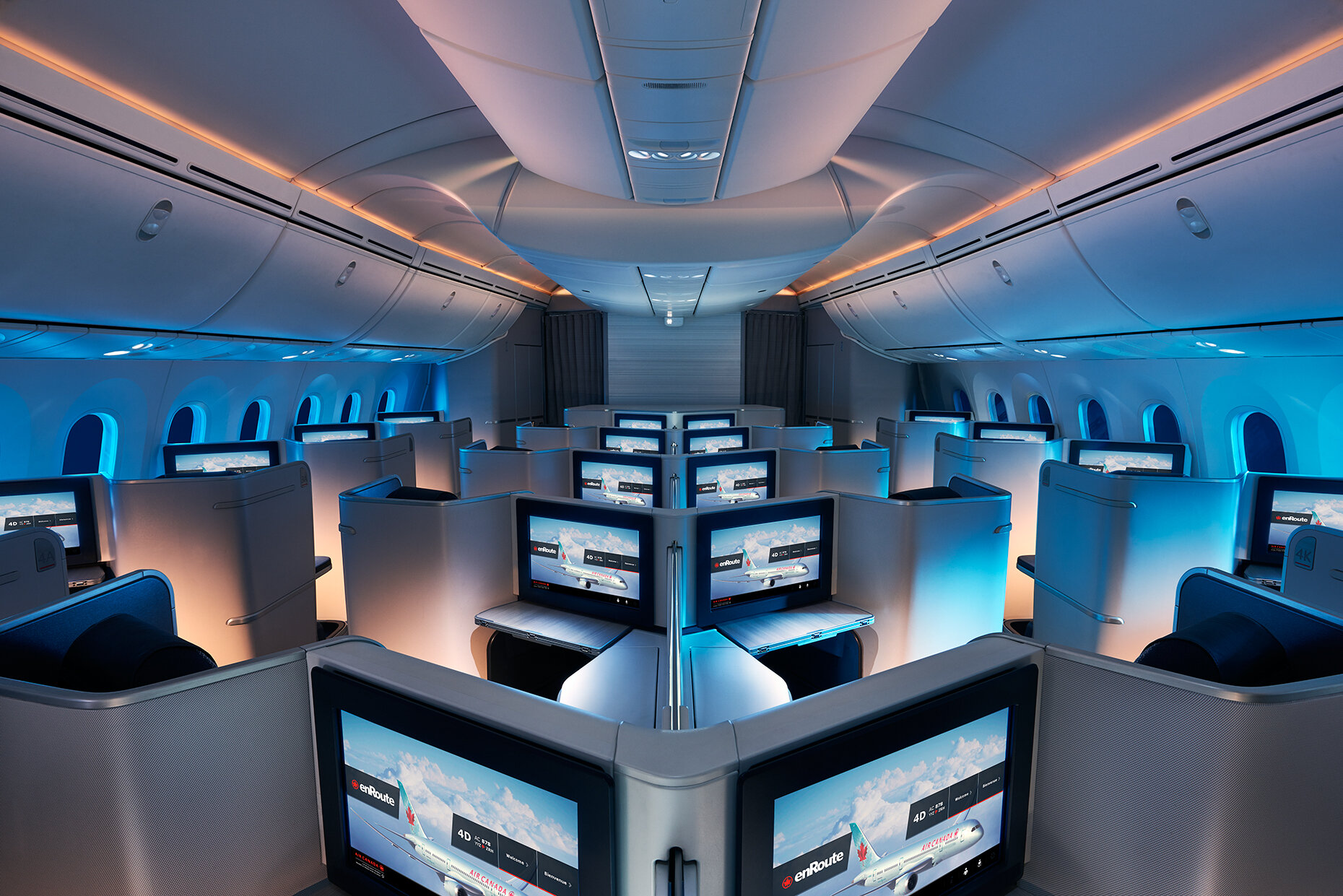
"Latitude Attitude": The Best Way to Use eUpgrades for Business Class
Read moreAs always, be sure to check for lower-priced tickets for one or two passengers if you’re travelling as a group. You may be able to find cheaper Aeroplan tickets for one or two members of your family, which you could then book on one reservation, and then book the rest of the family on another booking.
Furthermore, if you happen to have an Air Canada Annual Worldwide Companion Pass for spending $25,000 on a premium Aeroplan credit card, you could consider booking two people on a cash booking and everyone else on points.
Similar to the Buddy Pass, you can find a balance between saving points and saving money by using all of the travel tools in your arsenal.
Low Infant Award Fees
Lastly, if you’re travelling with an infant under the age of two and don’t require an extra seat, Aeroplan has a pretty good policy.
It’s free to add an infant on flights within Canada and the United States, and it only costs $25 or 2,500 points to add an infant under the age of two to your reservation for international flights.
Keep in mind that this does not give your infant their own seat, but rather a lap seat (i.e., they are on your lap for the duration of the flight, or if under a certain weight and/or age, may use the bassinet on bulkhead seats).
It couldn’t be easier to add an infant on lap to your reservation. Before you do your search, just be sure to add the infant on lap in the passengers field.

Continue through with the booking process, and you’ll be all set. You can request a bassinet by calling Aeroplan as soon as your booking is complete.

Flying With Kids: Infant Flight Awards
Read moreConclusion
Aeroplan is a loyalty program designed with families in mind, and I’ve been able to enjoy many trips with my family booked on Aeroplan points.
On the earning side, it’s easy for families to combine their points through Family Sharing, and it’s also easy to earn points with the suite of Aeroplan co-branded credit cards.
On the redeeming side, there are a few tools at your disposal to help save on costs. These include leveraging perks from credit cards and Aeroplan Elite Status, shopping strategically for flights, and being aware of the sweet spots within the program – many of which serve the most popular family travel destinations after all.

Amy is an avid traveller and having three kids has not slowed her down. Through leveraging travel rewards, she continues to explore the world with her family in a fun and memorable, yet affordable way.
First-year value
$588
Annual fee: $139First Year Free
• Earn 10,000 points on first purchase
• Earn 15,000 points upon spending $3,000
• Earn 20,000 points on card anniversary upon spending $12,000 in the first 12 months
Earning rates
Key perks
- Free first checked bag for cardholder + up to 8 companions
- 1,000 SQC per $20,000 spend toward Aeroplan Elite Status (up to 25,000 SQC/year)
- $100 NEXUS rebate every 48 months
- 4th night free on Aeroplan hotel redemptions
- Troon Rewards Silver (10% off at 95+ golf courses)
- Avis Preferred Plus (1 car-class upgrade)
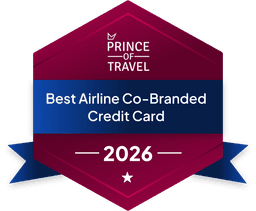
Annual fee: $139First Year Free
• Earn 10,000 points on first purchase
• Earn 15,000 points upon spending $3,000
• Earn 20,000 points on card anniversary upon spending $12,000 in the first 12 months
Earning rates
Key perks
- Free first checked bag for cardholder + up to 8 companions
- 1,000 SQC per $20,000 spend toward Aeroplan Elite Status (up to 25,000 SQC/year)
- $100 NEXUS rebate every 48 months
- 4th night free on Aeroplan hotel redemptions
- Troon Rewards Silver (10% off at 95+ golf courses)
- Avis Preferred Plus (1 car-class upgrade)
